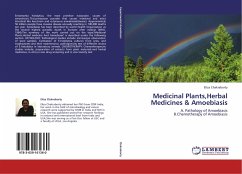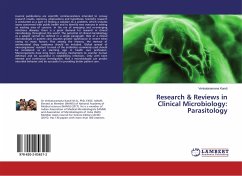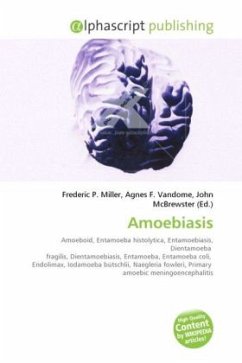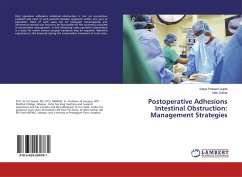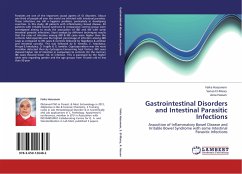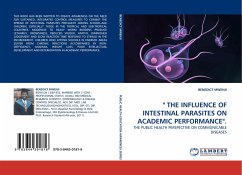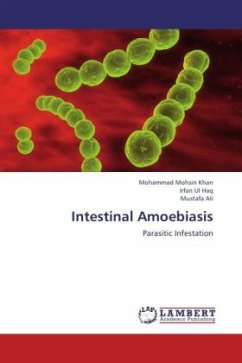
Intestinal Amoebiasis
Parasitic Infestation
Versandkostenfrei!
Versandfertig in 6-10 Tagen
32,99 €
inkl. MwSt.

PAYBACK Punkte
16 °P sammeln!
Amoebiasis is a disease caused by a single-celled parasite called Entamoeba histolytica. Entamoeba histolytica is the third leading cause of morbidity and mortality due to parasitic disease in humans (after malaria and schistosomiasis) and is estimated to be responsible for between 50,000 and 100,000 deaths worldwide every year. It is a tiny single celled creature, 10 to 40 milli microns in diameter. It is normally a resident of large intestine of man. While it remains free in the intestines, the person is symptom less, but when it invades the mucous membrane of later, it gives rise to amoebic...
Amoebiasis is a disease caused by a single-celled parasite called Entamoeba histolytica. Entamoeba histolytica is the third leading cause of morbidity and mortality due to parasitic disease in humans (after malaria and schistosomiasis) and is estimated to be responsible for between 50,000 and 100,000 deaths worldwide every year. It is a tiny single celled creature, 10 to 40 milli microns in diameter. It is normally a resident of large intestine of man. While it remains free in the intestines, the person is symptom less, but when it invades the mucous membrane of later, it gives rise to amoebic dysentery. Life cycle of the parasite consists of two stages. The first form is called as the Tropozoit , in which form the parasite stays in the intestines. The second form is called Cyst, as which the parasite is excreted out of human body through the feaces. The cyst may survive well outside the human body in feaces, uncooked or contaminated food stuffs and water. Apart from the intestine, where it causes Amoebic dysentery, the parasite can also infect the liver. In cases of prolonged and severe infection with it, the parasite reaches the liver to cause liver abscess.



